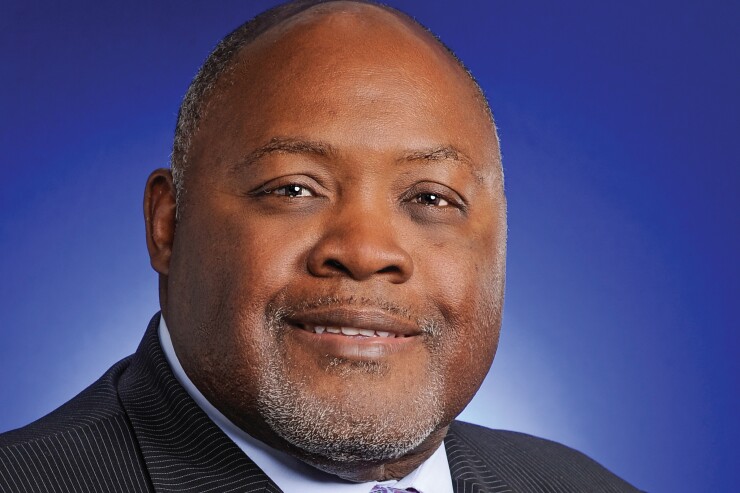Legislation to hand control of Muncie, Indiana Community Schools to Ball State University without a timeline for returning the district to local control sparked worries that other school districts may become vulnerable to a similar takeover.
House Bill 1315 passed in a House vote of 65-26 Thursday. The bill impacts both Muncie district and the district in Gary, and establishes guidelines that could be used to determine future oversight of other struggling districts. The state in a first-time action took full control of the Gary district and partial control of the Muncie district last year and both are under the oversight of emergency managers. The state recently expanded its oversight of Muncie.

The legislation would reduce the number of meetings for the school board of a struggling corporation from once a month to once every six months and limit the power of the board.
It allows Ball State board of trustees and the president of the university to replace the current five-member elected school board in Muncie with a seven-member appointed board.
It also requires the state to analyze the financial conditions of all Indiana school corporations to identify those showing fiscal distress. Those schools could obtain technical assistance from the state.
The bill moved to the Senate floor and a vote is expected March 6.
Rep. Gregory Porter, D-Indianapolis, who opposed the bill, said the legislation essentially puts Muncie schools "up for adoption" by BSU and Gary schools are “gutted completely.”
“If I were a member of an elected school board today, I’d be asking myself what’s my status?” said Rep. Edward Delaney, D-Indianapolis. “If somehow we get into trouble, are we going to have the Indiana General Assembly take over our district? I’d be bothered about that.”
The Monroe County Community School Corporation Board sent a letter to Gov. Eric Holcomb, a Republican who enjoys GOP majorities in the legislature, and the Indiana General Assembly on Jan. 25 to express “strong opposition.”
“It is critical that the Indiana Legislature not, again, usurp control of our public schools, recognizing that any of our districts and elected positions could be next,” the letter said.
The author of the bill, Rep. Tim Brown, R-Crawfordsville, defended the proposed law and said the school boards in Muncie and Gary had not served as good role models for children.
"We have the pattern of adults spending outside of their means, which then models for children irresponsibility,” Brown said. “We have the pattern for adults spending outside their means and recklessly, meaning that models for children fraudulent behavior. We have patterns of adults spending outside of their means and excessively, modeling for children that there is no accountability. I think that is all wrong. "

The new proposal would hand control of the Muncie district to Ball State University on July 1. Ball State would take control of the financially distressed schools through an appointed seven-member board.
It would also remove the "distressed" label from Muncie Community Schools and provide an interest-free state loan to the district for a term of up to 10 years. The school district needs the loan because it used a $10 million general obligation bond for operating expenses instead of completing building repairs and improvements outlined in the 2014 bond issue.
“To be clear, right now Muncie voters have no voice in the operation of Muncie schools,” director of the Center for Business and Economic Research and a professor of economics at Ball State University, Michael J. Hicks said in a statement. “The state runs both schools and the elected school board has no legal powers now or into the distant future. The fault for that lies wholly with dozens of successive school boards whose members accommodated deliberate misuse of funds.”
Ball State President Geoffrey Mearns said this legislation doesn't make Ball State legally or financially responsible for MCS. Under the terms of the proposed legislation, Ball State’s Board of Trustees must also approve the university’s involvement.
“That determination will be made if and when the proposed legislation is approved by the General Assembly,” said Mearns. “The Trustees support the proposed legislation because they understand that it is consistent with our mission and our institutional interests. They also appreciate that it is the right thing to do for a community that has supported our University for 100 years.”
Mearns said that the initial focus would be on the Muncie schools' finances and stemming the decline in enrollment. Enrollment in the fall of 2017 stood at 5,215, down 8.3% from a year earlier and down 32.2% since 2005-06. The district was slated to finish 2017 with a budget deficit of $12 million mostly created by the misspent bond proceeds.
Ball State manages the Indiana Academy and the Burris Lab School and an on-campus academy for gifted high school juniors and seniors. Ball State says Burris is "not identical to Muncie Community Schools," but "the experience is comparable and we will bring that experience to bear."
The university also conducts oversight of more than two dozen charter schools around the state, nearly half of which are rated D or F. But the university says its limited role as a charter school authorizer is to "give a charter school guardrails and road signs to help it get to its destination — achieving school goals. However, we are not driving the car."
Rep. Chuck Moseley, D-Portage, expressed concern over who would protect taxpayers under the Ball State scenario should things turn upside down. Moseley, citing a 2010 investment scandal that saw the university lose $13.65 million, said he saw no assurances in the legislation that Muncie taxpayers will be made whole should there be any mismanagement of taxpayer dollars.
Democratic representatives from Gary and Muncie complained the emergency managers haven't had enough time to turn the districts' finances around. Lawmakers last year passed legislation that placed Gary and Muncie schools under state oversight.
Rep. Earl Harris, D-East Chicago, says it's unfair to impose changes when the district was in the process of righting its financial ship under legislation passed just last year.
"More than half the school board is no longer in place. There is new leadership in place," Harris said. "I'm very uncomfortable with taking away the responsibilities of an elected body to the run the school district."
MCS has undergone a number of significant changes. In 2017, school officials and interim emergency managers took steps to improve the district's financial condition.
The most notable recent initiatives include debt restructuring that gives a 10-year extension on 60% of the district's debt and $1.6 million immediate savings, along with approximately $1.3 million of recurring savings from 2018 through 2022. The district has raised $1.2 million though the sale of land and adjustment of certain healthcare benefits and elimination of the retiree healthcare benefits are expected to bring in $1.9 million in annual savings.
As a result, the district ended 2017 with a $2 million cash balance, which is an improvement from last year's negative $1.5 million, according to the unofficial year-end report prepared by management, on a cash basis of accounting.
Still, the positive total cash balance is offset by the large $9.3 million cash deficit in the general fund. S&P Global Ratings downgraded the Muncie Community School bonds by one notch to BB-minus on Jan. 26. It had cut the rating to junk in August, lowering it to BB from BBB-plus.
The Gary district is trying to reduce the approximately $8.5 million it owes to the IRS for a tax liability created when the school district failed to remit taxes it withheld from employee paychecks to the IRS on a quarterly basis.
Gary also owes $40 million for past state loans, another $40 million in private loans and $15 million on school construction bonds. The district is designated as a distressed political subdivision which specifies the powers and duties of a Gary district emergency manager over finances and academics. The manger holds broad powers over spending, contracts, hiring, and budgets.
HB 1315 would further strip power from the Gary school board. Under the bill the school board becomes an advisory committee to the district's emergency manager, Peggy Hinckley, and limits the board to four public meetings a year. The bill also allows the emergency manager to fire teachers before Sept. 30 of a given school year.





